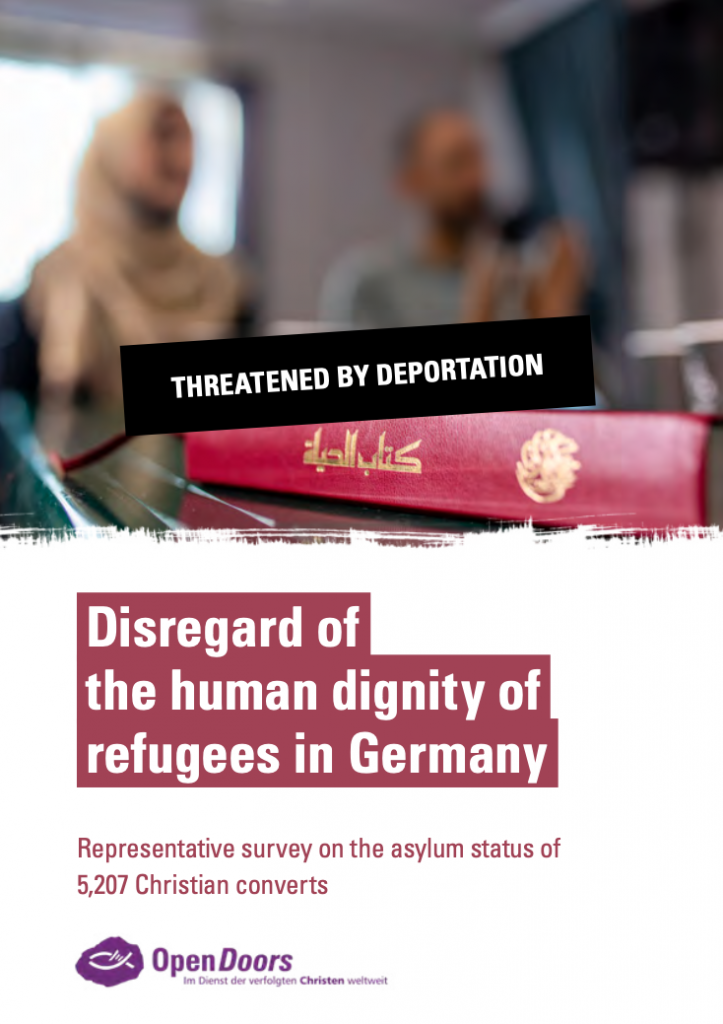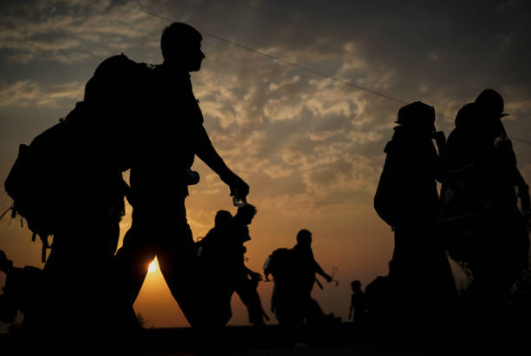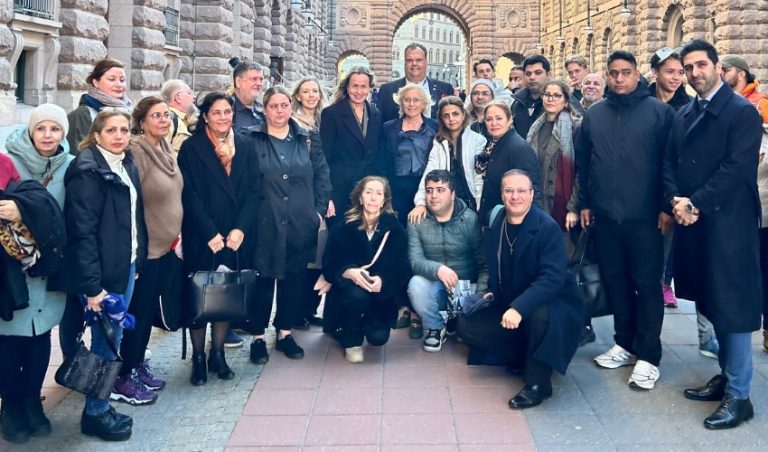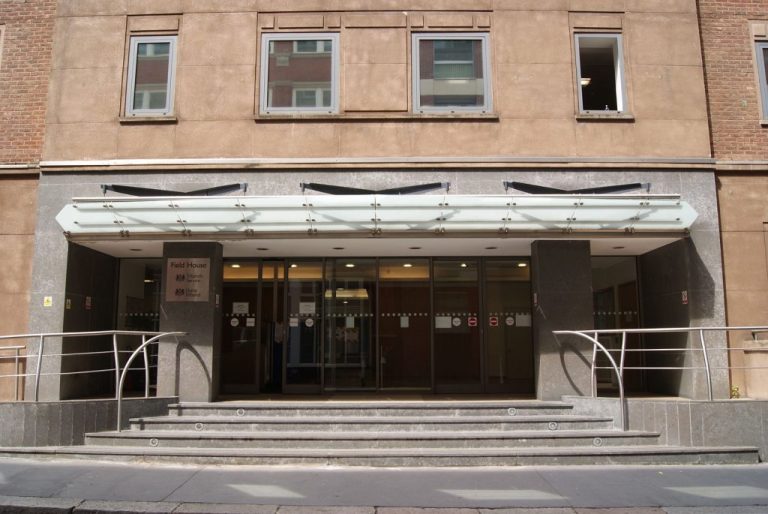An Iranian Christian convert who has been seeking asylum in Germany for four years has until today to accept his deportation or hand over his work license, after his final appeal – to the European Court of Human Rights – was rejected.
The 44-year-old, who can only be identified by his initials, “H.H.”, had already seen his claim rejected by Germany’s immigration service, and then by three German courts.
And his lawyer, Simone Böhne, told Article18 that there are no more legal avenues left to explore.
H.H. left Iran in 2016, with his wife and three children, and initially claimed asylum with the UNHCR in Turkey.
But two years later, with no progress in their case, and having found it difficult to support his family in Turkey, where refugees cannot legally work, H.H. travelled to Germany, in the hope in the short-term of being able to provide for his family, and in the long-term that they may all be resettled there.
But, as in so many other asylum cases involving Christian converts in Germany, and elsewhere in Europe, H.H. found that officials simply wouldn’t believe him.
In H.H.’s case, the judge refused to accept that H.H., as he insisted, had been inspired to become a Christian after the death of his brother-in-law in prison, whom H.H. said was killed because of his Christian faith.
“The judge said that even if he was killed, it would be more probable that he did not follow the same ideas,” Dr Böhne explained.
“But for me, that’s against everything that we know from history and theology. If somebody dies for his religion, and becomes a martyr, this could be very attractive to other people.”
The lawyer said that her client was asked three times why he had converted, and each time responded in a way that she, as a Christian, found convincing.
“He answered with Bible verses that fit in very, very well,” she said, such as quoting from the Parable of the Sower.
“He not only showed knowledge of Christianity,” she said, “but he answered with the words of Jesus, which, for me, was very exceptional.”
But the judge wasn’t so impressed, asking H.H. why he hadn’t answered the question, and if he had understood what had been asked of him.
“In my opinion, as a Christian,” Dr Böhne said, “he did answer the question. But the judge repeated: ‘Is there any problem with the translation?’ He said, ‘No, no, I understand very well.’ ‘OK, do you understand my question?’ ‘Yes.’ And then the same question.
“Three times, the judge said: ‘You did not answer my question. Again, why did you turn to Christianity?’ And every time I show his answer to anyone, they say that he answered the question.
“We even asked a professor of intercultural religion what answer would be required, and he said, ‘The answer this man gave.’”
“What more do they expect from me?” H.H. asked Article18. “My pastor [in Germany] believes me, the Assemblies of God leader from Tehran who baptised me believes me, but the judge tells me he doesn’t believe me.”
The judge said there were inconsistencies in H.H.’s story, but Lidia Rieder from ADF International, which has offered its support to Dr Böhne in this case, told Article18: “Inconsistencies alone should not be the reason why an entire application is denied. And what German courts are doing is looking for these inconsistencies, precisely so that they can give a negative decision. And they fail to do an overall assessment of a claim in its entirety.
“This is what is bothering us when we deal with these cases.”
Dr Böhne said there was also inconsistency within the German courts, with the cases of Christian converts much more likely to be accepted in some parts of the country than others.

This was also one of the criticisms of a report last year by Christian charity Open Doors Germany, titled, ‘Disregard of the human dignity of refugees in Germany’.
Among many other criticisms, the author, Ado Greve, noted how there were “high discrepancies” between regions, with a 94% rejection rate for asylum-seeking converts in Berlin, compared with just 10% in other states.
Mr Greve also noted how the testimonies of pastors, whom he said should be considered “experts in their profession”, were regularly disregarded by judges, an opinion Dr Böhne shares.
In H.H.’s case, his pastor in Germany, Matthias Ebeling, testified in writing: “Because of what I do at the church, and the experience I have with Christians from Iran, I personally believe that I can say that his testimony of him being a believer is trustworthy.”
“We had this letter from the pastor,” Dr Böhne explained, “but this wasn’t even mentioned [in the verdict].”
She added that when her client explained how he had been baptised in Turkey, the judge didn’t seem to even understand the concept of adult baptism.
She also supported another finding of the Open Doors report, that decisions too often hinge on the ability of the convert to express themselves, depending for example on how well-educated they are, while trauma may also make it more difficult for them to retell their stories.
“Many lawyers try to train their clients to answer the questions in a good way,” she said, “and I refuse to do so, because I say, ‘It’s not a game we’re playing here!’
“When the judges say they want to find out if they are Christians or not, that is a difficult task, and it’s their problem.
“There is not a good or right answer to the question: ‘What is the Bible verse that interests you the most?’ There is no right answer to that; you have to explain why you think this is very important for you, and why this verse attracted you.
“I have had some positive decisions [in other convert cases], but it’s all been intellectual Iranian men. They are able to discuss [their case] with the court on a certain level, to express their inner thinking. But if somebody says, ‘I [converted because I] felt something I never felt before’, then it’s over [their case will be rejected]! And these people are women, or men who haven’t had a lot of education.”
Dr Böhne added that H.H. was forced to use two different translators in separate hearings, and said there was “a big, big difference between the first and second. In his first hearing, [H.H.] was explaining and explaining again; and in the second hearing, his answers were very short… And he had already explained all his story in the first hearing.
“And nobody cares about this [the use of different translators]. It makes me really, really angry. And the translators are all Muslim, or at least my client believes that they are Muslim, so he is not free to answer how he wants.”
Dr Böhne appealed to three courts – the German Court of Appeal, Constitutional Court, and finally the European Court of Human Rights – but in each case it was rejected “very quickly… even more quickly than usual”, she said.
And so we come back to today, and H.H.’s choice, six years since leaving Iran, of a forced return, or accepting that he will no longer be able to work in Germany and support his family back in Turkey.
Meanwhile, any realistic hope he had for his family to be resettled together in Germany would appear to have been entirely extinguished.




0 Comments